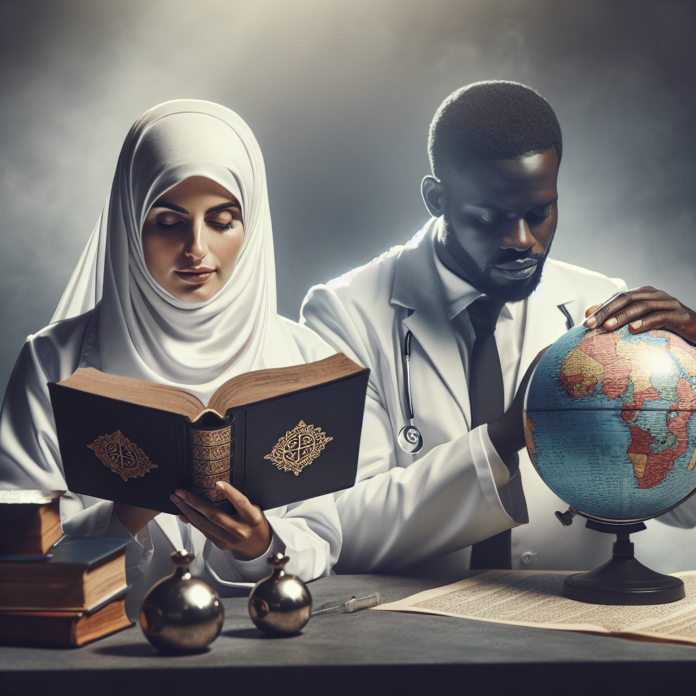Faith and Reason: Progressive Catholicism’s Approach to Science and Politics
In recent years, Catholic progressivism has carved out an increasingly significant role in cultural and political discourses, harmonizing faith with reason in ways that traditionalists often find uncomfortable. These progressive Catholics focus on integrating scientific advancements with theological insight and promoting inclusive, equitable policies. As society transforms, the progressive Catholic viewpoint is shaping a path forward where both faith and reason coexist harmoniously, providing innovative solutions to contemporary issues.
Historical Context: A Legacy of Integration
Throughout history, Catholicism has experienced cycles of conservatism and progressivism. The Second Vatican Council (1962-1965) marked a pivotal era, aiming to modernize the Church’s approach to the contemporary world. Progressive Catholics, inspired by this movement, emphasize social justice, environmental stewardship, and the integration of scientific understanding with faith.
Hans Küng and Teilhard de Chardin, for example, advanced theological interpretations that embraced evolution and modern cosmology, envisioning them as integral to understanding divine creation. Despite facing opposition from traditional quarters, their ideas have inspired a generation of Catholics to view science and faith not as opposing forces but as complementary elements enriching our understanding of God’s universe.
Modern-Day Science: Bridging Faith and Reason
One of the most contentious areas where progressive and conservative Catholics diverge is in their approach to science. Climate change, evolution, and medical advancements highlight the schism between rigid traditionalism and adaptive progressivism.
Pope Francis’ encyclical Laudato Si’ (2015) underscores the importance of environmental stewardship, calling on the global community to recognize climate change as a pressing moral issue. Drawing from scientific consensus, Pope Francis emphasizes that combating climate change is not just a matter of environmentalism but a moral imperative rooted in Catholic social teaching. In stark contrast, some conservative factions are reluctant to fully endorse these scientific viewpoints, questioning the extensive role of human activity and downplaying the urgency of ecological crises.
Progressive Catholics, on the other hand, support the notion that faith and science are not mutually exclusive but are partners in unveiling the mysteries of creation. Sister Ilia Delio, a Franciscan nun and theologian, advocates for a cohesive understanding of evolution and faith, proposing a "new spirituality" that acknowledges humanity’s role in the ongoing creation narrative detailed by both theology and evolutionary biology.
Political Engagement: A Progressive Catholic Imperative
Politics, imbued with moral and ethical implications, is another arena where progressive Catholics have made significant strides. The progressive Catholic agenda promotes social justice, human dignity, and the common good, aligning itself closely with inclusive and equitable policies.
The recent endorsement by the U.S. Conference of Catholic Bishops for more inclusive immigration policies highlights the progressive Catholic commitment to human dignity. Pope Francis has spoken frequently about the plight of refugees and migrants, emphasizing the need for compassion and humane treatment, a stance that stands in stark contrast to the often harsh rhetoric emanating from more conservative sectors within and outside the Church.
Currently, the global debate on healthcare access and women’s rights is another pressing issue. Progressive Catholics advocate for comprehensive healthcare reforms that ensure access for all, reflecting the Jesus’ teachings of healing and compassion. In contrast, Catholic conservatives often focus on narrower aspects like opposition to abortion, sometimes neglecting broader healthcare concerns that affect the marginalized.
Social Justice: A Call to Action
Progressive Catholicism is deeply rooted in the principles of social justice championed by liberation theology. This approach emphasizes the preferential option for the poor, advocating for systemic changes to alleviate poverty and inequality.
In 2020, amid global protests for racial justice, progressive Catholics were at the forefront, calling for an honest reckoning with systemic racism. They drew inspiration from historical figures like Archbishop Oscar Romero and the U.S. Bishops’ pastoral letter on racism, Open Wide Our Hearts. These efforts echo the sentiments of a Church actively engaged in dismantling structures of oppression and promoting societal transformation.
Challenges and the Road Ahead
Despite these advancements, progressive Catholics face significant challenges. Institutional inertia and entrenched traditionalism can be formidable obstacles. Nevertheless, progressive movements within the Church continue to gain traction, driven by a commitment to a faith that is relevant and responsive to contemporary issues.
The Synod on Synodality, called by Pope Francis, is a promising step toward a more inclusive and dialogical Church. By inviting voices from the peripheries, particularly those marginalized by traditional structures, the synod aims to renew the Church’s mission in a rapidly changing world.
In conclusion, progressive Catholicism represents a hopeful vision of the future, where faith and reason collaboratively address complex global challenges. By drawing from the rich legacy of Catholic social teaching and embracing scientific advancements, progressive Catholics are forging a path that prizes inclusivity, justice, and compassion. As the world continues to evolve, this harmonious integration of faith and reason offers a beacon of light, guiding us toward a more equitable and enlightened society.
